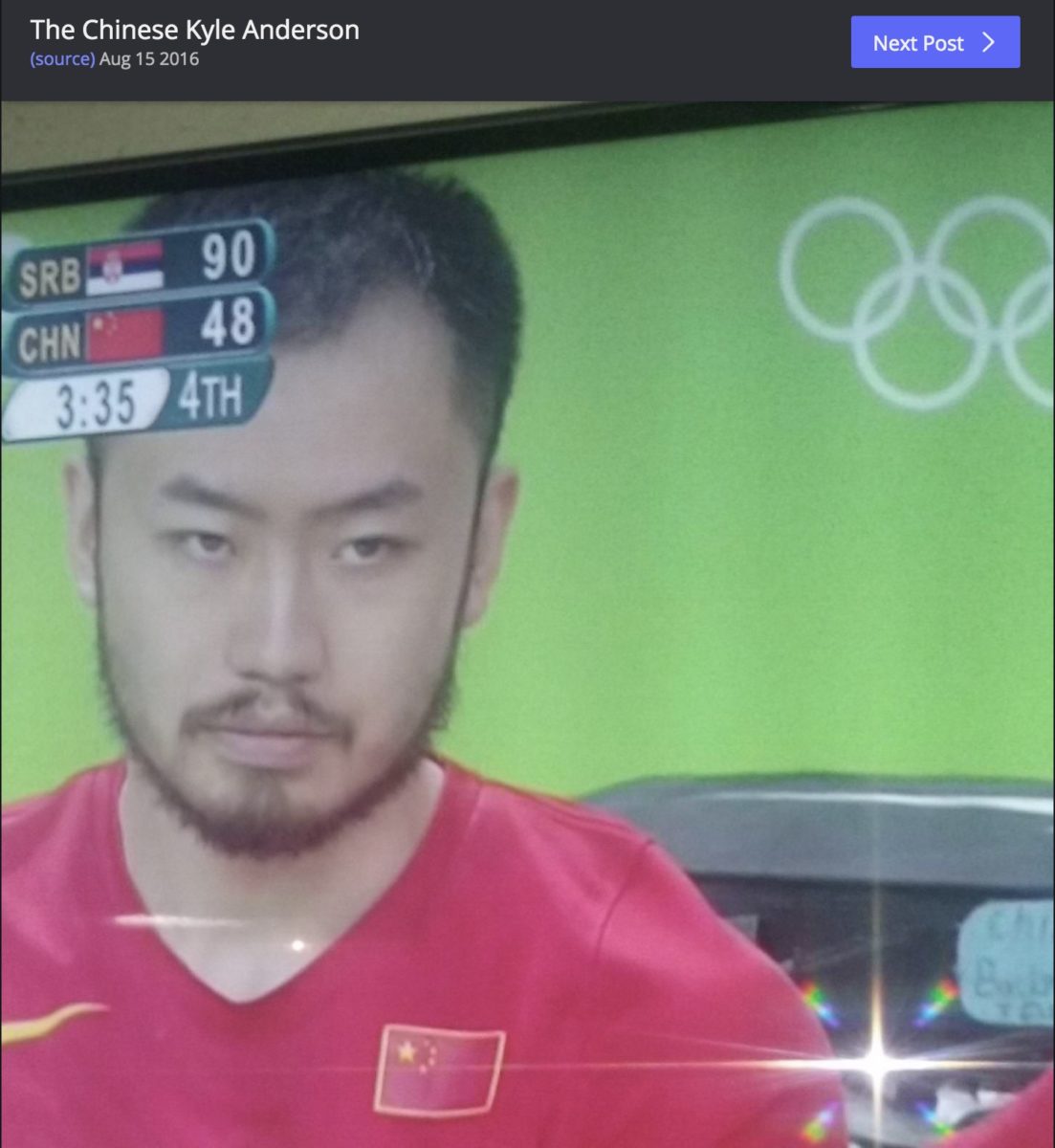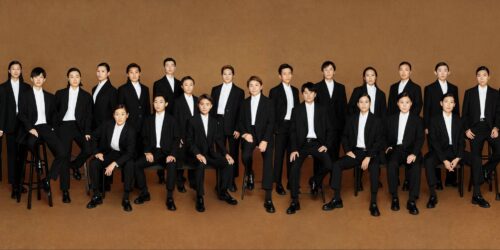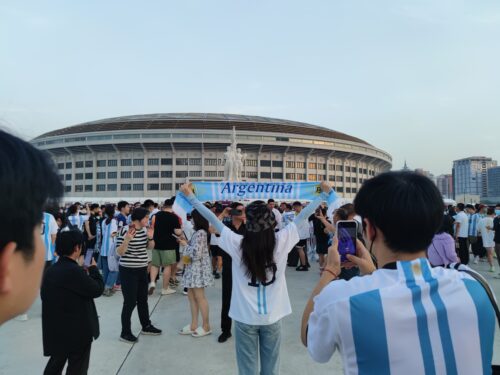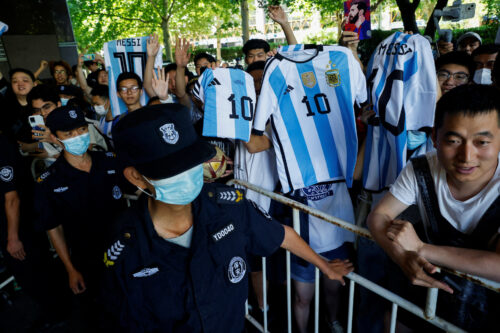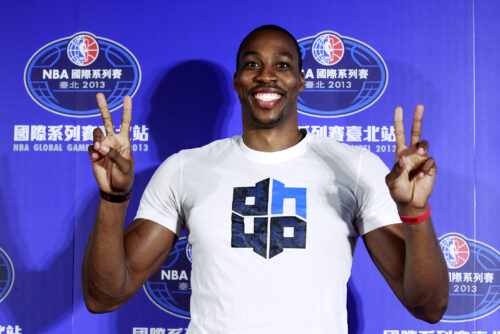The NBA has a new Chinese player, and it’s… Kyle Anderson?
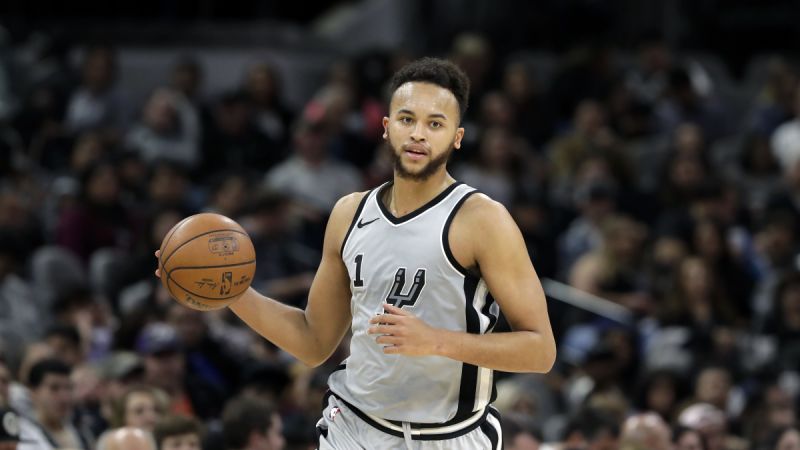
The China Sports Column is a The China Project weekly feature in which China Sports Insider Mark Dreyer looks at the week that was in the China sports world.
There’s a new Chinese player in the NBA. No, it’s not Yi Jianlian, back for a third crack at the big time. Nor is it Yao Ming dusting off the Reeboks for one last hurrah. It’s not even Dingyan Yuhang, recently signed by the Dallas Mavericks but unlikely to see much playing time next season unless something drastic happens.
It’s actually Kyle Anderson of the Memphis Grizzlies — or “the essence of human wriggling,” as he’s known by his Chinese fans — who is one-eighth Chinese and has recently been spending time in Shenzhen with his Chinese relatives.
According to this profile by Inkstone, Anderson’s great-grandfather, Samuel Lee Hing, was from China. He married a woman from Jamaica, where the family lived until emigrating to the U.S. years later.
Anderson recently met more than 30 relatives in Shenzhen in what appears to be a genuine attempt to reconnect with his roots rather than one of those staged documentaries that’s guaranteed to get a few clicks. His mother had been researching the family tree for more than four years, with Anderson saying — albeit between shots of baijiu — “I feel very, very comfortable here. This is what it feels being with family.”
While Anderson’s Chinese nickname conjures up images of worms personified, it comes from his English moniker Slow Mo, a reference to the former UCLA Bruin’s less-than-speedy playing style. But he’s no slouch: Memphis signed him last month from the San Antonio Spurs and will pay him $37 million over the next four years. And while that kind of money is no longer unusual in the NBA, where salaries have seen astronomical growth in recent years, he would, for comparison’s sake, be among the top 10 earners in the English Premier League.
With China actively recruiting ethnically Chinese foreigners for its Olympic ice hockey program, having also drafted U.S. national Ray Chang into its national baseball team in the past, what are the odds we’ll see Anderson leading the Chinese team at the 2024 Olympics in Paris, or in Los Angeles four years later?
P.S. Not to be confused with the “Chinese Kyle Anderson,” as a Redditor posted two years ago:
~
Another piece that made a stir this week was the Financial Times look at how Chinese investors, once so quick to pile into European soccer at the height of the spending boom, are beating an ever hastier retreat.
A particularly wise man (a.k.a. your correspondent) is quoted in the piece as saying that, “Some Chinese investors took advantage of this ‘green light’ and then the government realized it wasn’t benefiting Chinese football.”
Some in the sports world will talk almost daily about how sports and politics shouldn’t mix. But that’s total nonsense, of course, especially in China, where no sector is free from politics, despite the much-vaunted “separation” between the Chinese Football Association (CFA) and the government, which in reality is nothing of the sort.
It’s worth mentioning, however, that the government was entirely right on this particular point: Chinese companies were investing in European clubs for a wide variety of reasons, but none of those reasons had much to do with actually improving Chinese football, which was the whole point of China’s 2015 plan to reform the sport.
In the end, a typically political decision — restricting capital outflows, rather than any tweaking of China’s soccer strategy — was behind the government switching the lights from green to red when it came to outbound soccer investment, and a number of deals have fallen apart as a result.
AC Milan has been the pick of those disasters from a financial point of view, although the biggest disappointment for neutral observers is that Tony Xia, who bought Aston Villa two years but sold a controlling stake last month, has all but abandoned his highly entertaining Twitter platform.
The decline of Aston Villa under its enigmatic Chinese owner
AC Milan and its uncertain future under Chinese owner Li Yonghong
In related news, sports agency MP & Silva, which effectively moved into Chinese hands in 2016 after Everbright Securities and Beijing Baofeng Technology bought a 65 percent stake, is reportedly on the verge of the “biggest fail in sports marketing history,” with the two Chinese firms set to lose a combined $700 million if the agency goes bust. It’s already missed payments to sports properties including the English Premier League, and last week was taken to court by Italy’s Serie A after missing two payments worth nearly €40 million ($46.3 million).
The prospect for future defaults looks decidedly bleak. The bottom line here is that a sports agency is valuable because it has sports properties to market. Take those away and the remaining infrastructure is essentially worthless.
The NBA has been coming to China almost since time began (or 2004, if you’re being pedantic), and is currently preparing for its 25th and 26th games in China, with the Philadelphia 76ers and Dallas Mavericks due to play in Shanghai and Shenzhen in October.
The NHL, however, is still in its infancy here.
Last year, the league staged preseason games in China for the first time, with the Vancouver Canucks and Los Angeles Kings facing off in Shanghai and Beijing. This year, in another U.S.-Canada matchup, the Calgary Flames will play the Boston Bruins in Shenzhen on September 15 and Beijing on September 19 in what the NHL is calling the “China Games.”
If Shenzhen in southern China seems a strange choice from a climate perspective, then consider the words of NHL exec Steve Mayer, who cited NHL star Auston Matthews — predicted to be a generational talent when he was drafted No. 1 overall by the Toronto Maple Leafs in 2016 — as the “perfect example” of what the league is trying to accomplish in China.
Matthews grew up Scottsdale, Arizona, which, with an average high of 66 F in the coldest month of the year, doesn’t typically see too many kids growing up on skates. But with the Phoenix Coyotes (now the Arizona Coyotes) established as an NHL team in the region since 1996, Matthews had the chance to get hooked on the game he now dominates.
Granted, one game a year might not be much, but it has to start somewhere, and with a professional women’s team in Shenzhen about to start its second season in the Canadian Women’s Hockey League (in an arrangement that involves an awful lot of travel to and from North America), plus men’s pro teams in Beijing and Shanghai — and with more on the way — the sport is doing all it can to drive interest ahead of the 2022 Olympics.
Maybe, just maybe, Shenzhen might produce its very own version of Auston Matthews.
China’s Olympic hockey aspirations: Q-and-A with Shirley Hon of the Kunlun Red Star franchise
The China Sports Column runs every Friday on The China Project. Follow Mark Dreyer @DreyerChina
